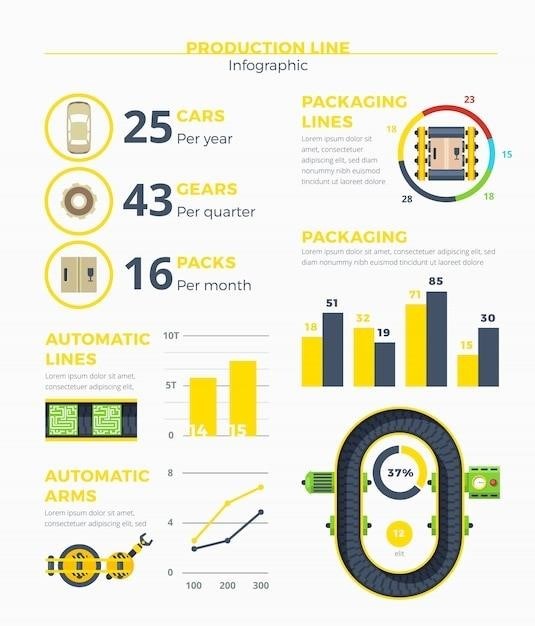Engine torque specifications are crucial for ensuring proper engine operation and preventing damage. These specifications detail the precise amount of force required to tighten bolts and other components on an engine, ensuring a secure and reliable assembly. This article will guide you through understanding engine torque specifications, their importance, types, and where to find them, including free download resources.
Introduction
Engine torque specifications are an essential aspect of automotive maintenance and repair, playing a critical role in ensuring proper engine operation and longevity. These specifications provide detailed instructions on the precise amount of force required to tighten bolts and other components on an engine, ensuring a secure and reliable assembly. Understanding and utilizing these specifications accurately is crucial for mechanics, technicians, and even DIY enthusiasts. Failure to adhere to proper torque values can lead to various problems, including loose components, leaks, and even engine damage.
The importance of engine torque specifications cannot be overstated. Incorrect torque values can result in loose components, which can cause vibrations, noise, and ultimately lead to failure. On the other hand, overtightening can lead to stripped threads, broken bolts, and even damage to the engine block. Therefore, adhering to the correct torque specifications is essential for maintaining the integrity and functionality of an engine.
This article will provide a comprehensive overview of engine torque specifications, including their importance, types, and where to find them, including free download resources. We will also discuss how to use these specifications correctly and highlight important safety precautions to ensure a safe and successful engine repair or maintenance process.
What are Engine Torque Specifications?
Engine torque specifications are a set of guidelines that define the precise amount of rotational force required to tighten bolts, nuts, and other fasteners on an engine. These specifications are typically expressed in units of Newton-meters (Nm) or foot-pounds (ft-lb). Torque specifications ensure that components are properly secured without overtightening, which could damage the engine block or other parts.
Each bolt or fastener on an engine has a specific torque specification that depends on several factors⁚
- Bolt Size and Material⁚ Larger bolts require more torque to tighten them securely. The material of the bolt, such as steel or aluminum, also affects the required torque.
- Thread Type⁚ Different thread types, such as coarse or fine threads, require different torque values to achieve a secure fit.
- Engine Component⁚ Different engine components, such as the cylinder head, connecting rods, or crankshaft, have different torque specifications for their bolts and fasteners.
- Manufacturer Recommendations⁚ Engine manufacturers provide specific torque specifications for each model, which are essential to follow for optimal performance and longevity.
These specifications are critical for ensuring proper engine function and preventing damage. They help to ensure that components are securely fastened without being overtightened, which can lead to stripped threads, broken bolts, and even damage to the engine block.
Importance of Torque Specifications
Engine torque specifications are not merely arbitrary numbers; they are crucial for the proper operation, longevity, and safety of your engine. Adhering to these specifications ensures a secure and reliable assembly, preventing potential issues that can arise from improperly tightened components.
Here’s why following engine torque specifications is paramount⁚
- Preventing Component Damage⁚ Overtightening bolts can lead to stripped threads, broken bolts, and even damage to the engine block, requiring costly repairs or replacement. Undertightening, on the other hand, can cause components to loosen over time, potentially leading to leaks or even catastrophic failures.
- Ensuring Proper Sealing⁚ Torque specifications play a critical role in ensuring proper sealing of critical engine components, such as the cylinder head gasket. Adequate torque ensures a tight seal, preventing leaks and maintaining optimal engine performance.
- Maintaining Engine Integrity⁚ Engine components are designed to work together under specific stress and strain levels. Incorrect torque values can disrupt these balance, leading to premature wear and tear on engine components.
- Optimizing Performance⁚ Proper torque values ensure that engine components are correctly aligned and functioning as intended. This optimizes engine performance, fuel efficiency, and overall reliability.
Ultimately, adhering to engine torque specifications is an essential part of responsible engine maintenance. It ensures a secure, reliable, and long-lasting engine.
Types of Torque Specifications
Engine torque specifications are not a one-size-fits-all approach. They vary depending on several factors, leading to different types of specifications you might encounter. Understanding these variations is essential for selecting the correct torque values for your specific engine and application.
Here are some common types of torque specifications⁚
- Yield Torque⁚ This specification refers to the torque required to stretch a bolt to its yield point, the point at which it begins to deform permanently. Yield torque is often used for critical components where a high level of strength is required.
- Tightening Torque⁚ This specification refers to the final torque applied to a bolt to achieve the desired clamping force. It’s the most common type of torque specification and is often used for general assembly tasks.
- Angle Torque⁚ This specification involves tightening a bolt to a specific angle after reaching a certain initial torque. Angle torque is often used for components that require a precise level of clamping force, such as cylinder head bolts.
- Lubrication-Specific Torque⁚ Torque specifications can vary based on the type of lubricant used. Different lubricants can affect the friction between the bolt and the mating surface, requiring adjustments to the torque values to achieve the desired clamping force.
- Material-Specific Torque⁚ The material of the bolts and mating surfaces can also influence torque specifications. For example, bolts made from different grades of steel may require different torque values to achieve the same clamping force.
Remember that engine torque specifications are dynamic and can change based on factors such as the engine model, year, and specific components. Always consult the manufacturer’s service manual or a reliable source for the most accurate and up-to-date specifications for your engine.
Where to Find Engine Torque Specifications
Finding accurate engine torque specifications is crucial for ensuring proper engine assembly and preventing damage. Fortunately, multiple resources can provide these specifications, but it’s important to choose reliable sources.
Here are some of the best places to find engine torque specifications⁚
- Manufacturer’s Service Manuals⁚ The most reliable source for engine torque specifications is the manufacturer’s service manual. These manuals are specifically designed for technicians and provide detailed information on all aspects of engine maintenance, including torque specifications. You can often find service manuals online or through authorized dealers.
- Online Databases⁚ Several online databases specialize in providing engine torque specifications. These databases can be a convenient and accessible resource, but always verify the information with the manufacturer’s service manual to ensure accuracy.
- Manufacturer Websites⁚ Many vehicle manufacturers provide technical information, including torque specifications, on their websites. You may need to register or log in to access this information. Be sure to check the website of the specific manufacturer for your engine.
- Repair Manuals⁚ Reputable repair manuals, such as those published by Chilton or Haynes, can also offer torque specifications. However, these manuals may not be as comprehensive as manufacturer service manuals.
- Online Forums⁚ While not always the most reliable source, online forums can sometimes provide helpful information, including torque specifications. However, always verify the information with other sources before relying on forum posts.
Always remember to double-check any torque specifications you find with the manufacturer’s service manual or a reputable source to ensure accuracy.
Free Download Resources

While manufacturers’ service manuals are the gold standard for engine torque specifications, they are not always readily available for free. Thankfully, several free download resources can provide access to this critical information. These resources can be invaluable for DIY mechanics and those seeking to save on repair costs.
Here are some of the most common sources for free downloads⁚
- Online Databases⁚ Several online databases offer free access to engine torque specifications, often in PDF format. These databases may be curated by individuals or organizations dedicated to providing technical information for automotive enthusiasts. While free, always double-check the accuracy of this information against other sources.
- Manufacturer Websites⁚ Some manufacturers make certain technical documents, including torque specifications, available for free download on their websites. While not all manufacturers provide this service, it’s worth checking the website of the specific manufacturer for your engine.
- Service Manuals⁚ Occasionally, you can find free downloads of service manuals for older vehicles or specific engine models on various websites. However, be cautious of websites offering free downloads, as some may distribute unauthorized copies or contain outdated information.
- Online Forums⁚ Online forums dedicated to specific vehicle models or engine types can sometimes offer links to free downloads of torque specifications. While forums can be a valuable resource, always verify the information with other sources before relying on forum posts.
Remember that free download resources may not always be comprehensive or accurate. Always verify the information with the manufacturer’s service manual or a reputable source before using any torque specifications obtained from free downloads.

Online Databases
Online databases are a valuable resource for accessing free engine torque specifications. These databases often contain a wealth of information, including service manuals, repair guides, and technical data for various vehicle models and engine types. Many databases are curated by individuals or organizations dedicated to providing technical information for automotive enthusiasts, making them a readily accessible and often free resource for those seeking engine torque specifications.
When searching for online databases, consider using keywords like “engine torque specifications PDF,” “automotive repair manuals,” or “service manual database.” You can also search for specific engine models or manufacturers to find relevant databases. Be sure to check the credibility of the database and its source before relying on the information provided. Some databases may offer limited access or require registration, while others may be entirely free to use.
While online databases can be a valuable resource for accessing free engine torque specifications, always verify the information with other sources, such as manufacturer websites or service manuals, to ensure accuracy. Remember that online databases may contain outdated information or errors, so it’s crucial to exercise caution and cross-reference data before using it for repairs or maintenance.
Manufacturer Websites
Manufacturer websites are a primary source for obtaining accurate engine torque specifications. Most reputable automotive manufacturers provide comprehensive technical information for their vehicles, including detailed service manuals, parts catalogs, and repair guides. These resources often include specific torque specifications for various engine components, ensuring accurate data for maintenance and repairs.
To find engine torque specifications on a manufacturer’s website, navigate to the “Support,” “Technical Information,” or “Owners Manuals” sections. You may need to create an account or register your vehicle to access certain content. Once you locate the relevant section, search for the specific engine model or parts you need. The manufacturer’s website should provide detailed torque specifications for all components, including cylinder head bolts, connecting rod bolts, and other critical engine parts.
While manufacturer websites are a reliable source for engine torque specifications, keep in mind that some manufacturers may charge fees for accessing certain technical information. However, many manufacturers provide free access to basic maintenance information, including torque specifications for common repairs. Always refer to the manufacturer’s website as the most trusted source for accurate and up-to-date engine torque specifications.
Service Manuals
Service manuals, also known as repair manuals, are comprehensive guides designed for professional mechanics and technicians. They contain detailed instructions, diagrams, and specifications for repairing and maintaining vehicles. Service manuals are an invaluable resource for obtaining accurate engine torque specifications for various components.
These manuals provide detailed torque specifications for each engine model, often with specific instructions and diagrams for proper tightening procedures. They also include information on special tools or equipment required for certain tasks. Service manuals are essential for ensuring proper engine assembly, preventing damage, and maintaining optimal engine performance.
While service manuals are typically available for purchase from automotive retailers or online distributors, some manufacturers may offer free downloads of basic service manuals on their websites. However, obtaining a complete and up-to-date service manual may require a purchase. If you’re planning on performing significant engine work, investing in a service manual is a wise decision, providing you with the most comprehensive and accurate information for your specific vehicle.
Using Engine Torque Specifications
Using engine torque specifications correctly is essential for ensuring a safe and reliable engine assembly. Incorrect torque values can lead to loose or overtightened components, potentially causing engine damage, leaks, or even catastrophic failure. To use torque specifications effectively, follow these steps⁚
Identify the Specific Torque Value⁚ Consult the appropriate service manual or online database for the specific component and engine model you are working on. Ensure you have the correct torque specification for that component.
Select the Right Torque Wrench⁚ Use a calibrated torque wrench with the appropriate range and units (Nm, kgfcm, or ft-lb).
Proper Tightening Sequence⁚ Follow the specified tightening sequence outlined in the manual. This sequence ensures even stress distribution and prevents warping or damage to the component.
Final Tightening⁚ Once the final torque value is reached, do not continue to tighten the bolt. Overtightening can damage the threads or the component itself.
Double-Check⁚ After tightening, double-check the torque value to ensure it meets the specified requirement.
Remember, using torque specifications properly is crucial for ensuring a reliable and safe engine assembly. By following these steps and utilizing the appropriate resources, you can ensure your engine is assembled correctly and operates efficiently for years to come.





